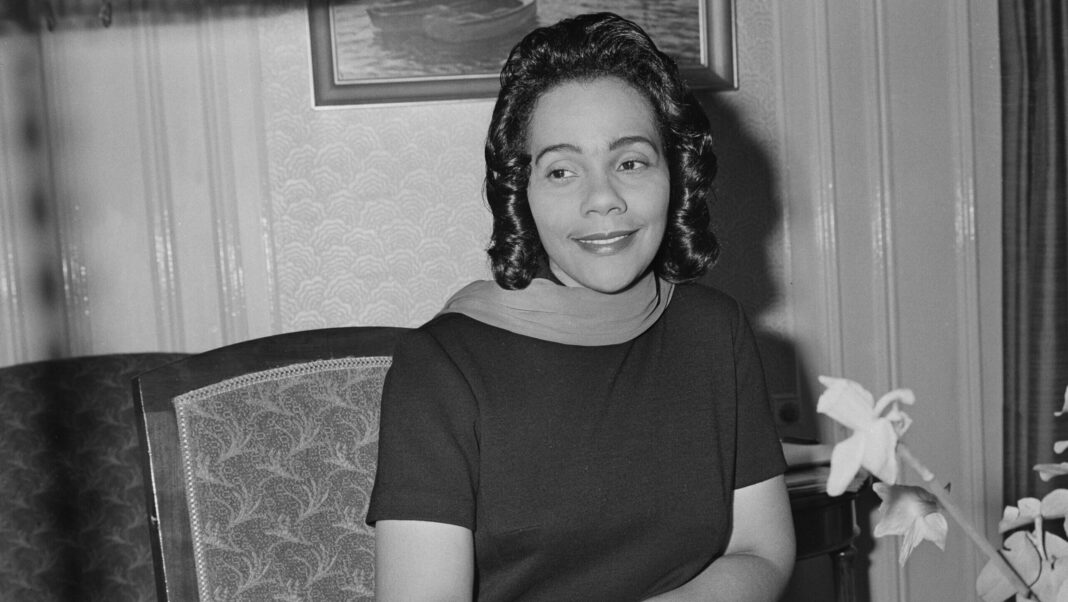Coretta Scott King: Architect of Justice and Legacy of Resilience
Coretta Scott King was more than the wife and widow of Martin Luther King Jr. She was an architect of justice and a leader in her own right. A classically trained singer who became an activist, she skillfully navigated the worlds of music and social justice, making the case that civil rights could never be confined to a single man, march, or nation. Throughout her life, she strived to ensure that the struggle for equality remained alive and pressing.
A Devoted Mother in the Midst of a Movement
While Coretta was deeply involved in civil rights, she was also a devoted mother, raising four children—Yolanda, Martin III, Dexter, and Bernice. Balancing the demands of motherhood with the responsibilities of a movement was no small feat. Yet, she managed to uphold the ideals of justice and equality for her family and her community while embodying resilience in the face of adversity.
Ovarian Cancer Awareness Month
September marks Ovarian Cancer Awareness Month, and Coretta’s battle with this illness often serves as a reminder of the complexities surrounding healthcare and equity. Her death in 2006 from ovarian cancer—a disease that remains one of the deadliest cancers affecting women—highlights the urgent need for awareness and action. For Black women especially, Coretta’s story emphasizes that the fight for justice intersects with the fight for health equity, making it all the more pertinent in today’s conversations about race and healthcare.
Early Activism and Organizational Leadership
Long before she was known as “the First Lady of the Civil Rights Movement,” Coretta was mobilizing for change. Her activism began as a student in Ohio and Massachusetts, where she honed her leadership skills. Later, she found herself on the front lines of the freedom struggle in Montgomery, Selma, and beyond. Following the assassination of her husband in 1968, rather than retreating into grief, she stepped into a larger role as a leader. Within months, she founded The King Center in Atlanta, ensuring the movement’s heartbeat would continue, and committed to preserving the legacy of her husband’s dream.
A Multifaceted Leader
Coretta’s leadership extended far beyond her husband’s legacy. For the next four decades, she advocated for peace, women’s equality, LGBTQ+ rights, and environmental justice. She made it clear that Martin Luther King Jr.’s dream was never meant to end in 1968; it was a living, evolving ideal. During the 1970s and 80s, when many attempted to relegate the Civil Rights Movement to history, she forged international connections, aligning herself with global leaders and movements.
Global Advocacy and Women’s Rights
In her advocacy work, she prominently addressed issues such as apartheid in South Africa, lobbying for sanctions against the oppressive regime. As a champion for women’s rights, Coretta highlighted the intersectionality of race and gender, advocating for equal pay and reproductive freedom while calling out the systemic racism embedded in discussions about women’s rights. Additionally, she was among the first prominent figures to openly support LGBTQ+ rights, believing that justice and equity must extend to all, regardless of their identity.
A Quiet Battle with Ovarian Cancer
Despite her fierce advocacy for human rights, Coretta’s last fight was waged silently against ovarian cancer. She passed away in 2006, living with a disease that is notoriously difficult to detect early. Symptoms like bloating and abdominal pain often go dismissed, leading to late diagnoses. While Black women do not necessarily develop the disease at higher rates, they face disproportionately higher mortality rates, stemming from delayed diagnoses and unequal access to care. Coretta’s passing underscores the urgent need for awareness around healthcare inequities that persist to this day.
The Legacy of Resilience
Even as her health declined, Coretta never wavered in her commitment to justice. Just weeks before her death, she made a public appearance at a Martin Luther King Jr. celebration in Atlanta, a testament to her enduring spirit. Her funeral, which drew notable figures including four U.S. presidents among thousands of mourners, reflected the deep respect she commanded as a leader in her own right. Her life serves as an enduring reminder that the pursuit of justice must continue, intertwining the causes for civil rights with those for health equity and social justice.



